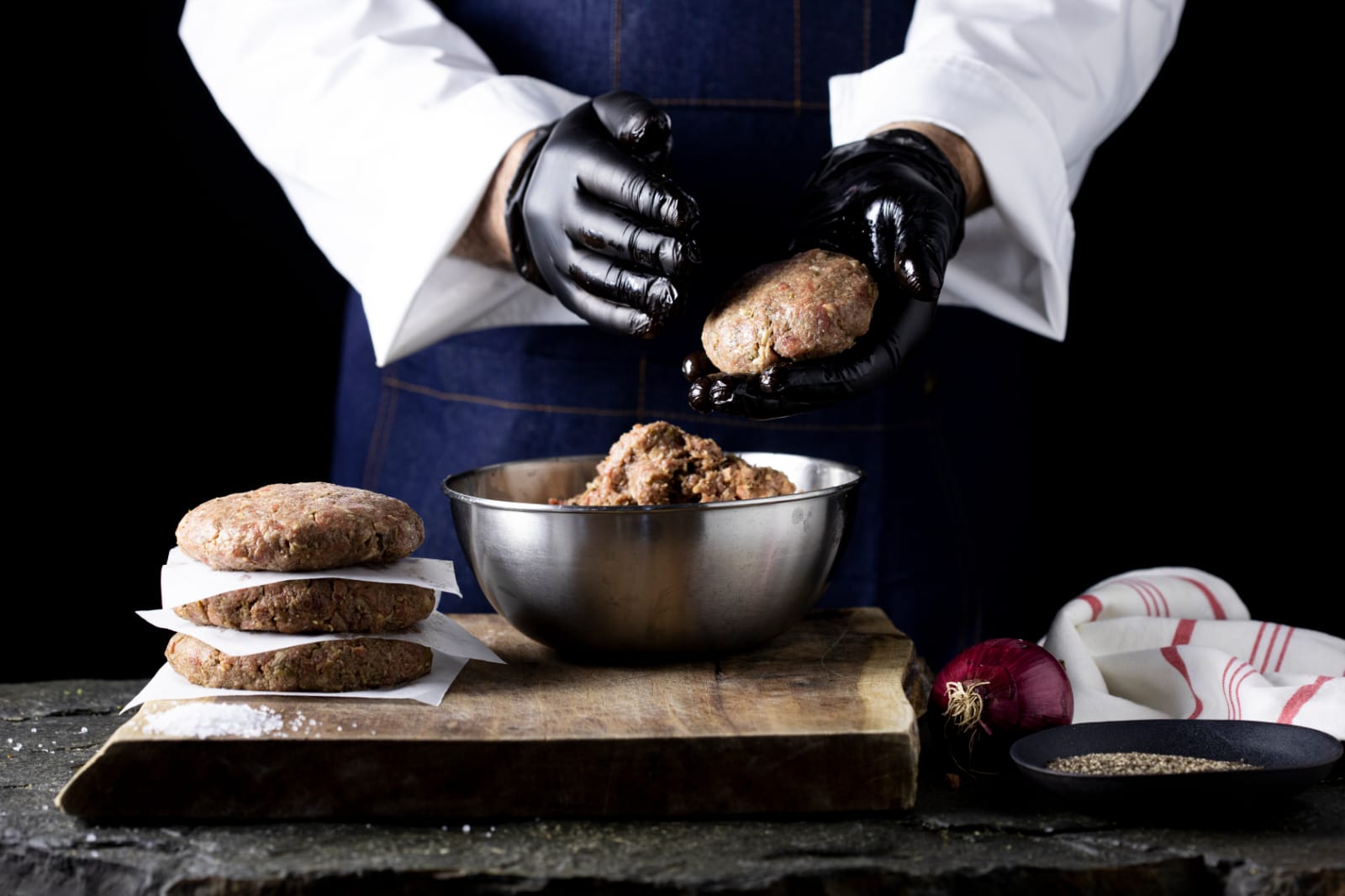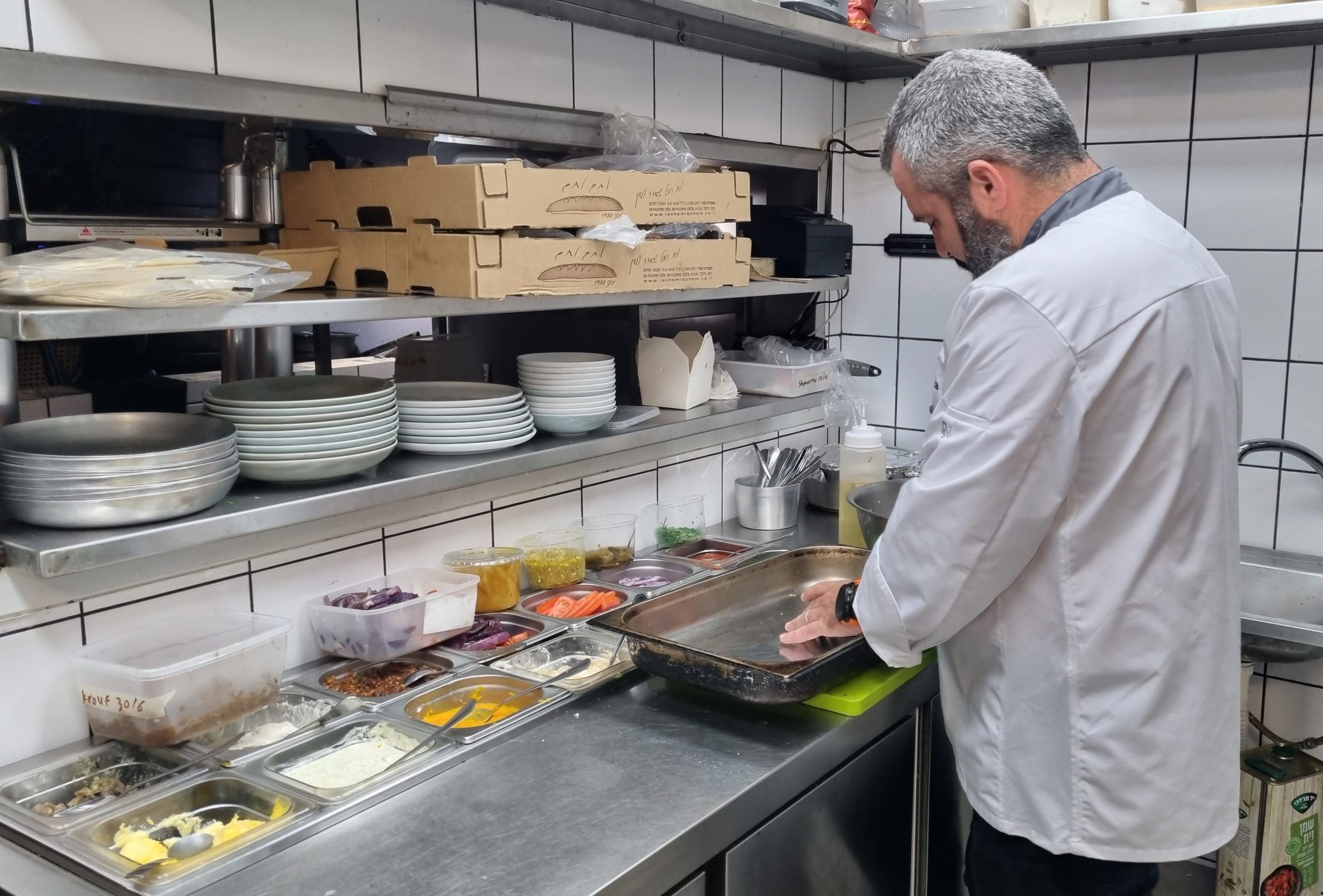An Israeli food tech startup is preparing to launch a “hybrid meat” revolution in Tel Aviv restaurants next month.
Mush Foods, a startup that was founded last year, leverages food waste to grow an edible mushroom known as mycelium.
The company grows 14 mycelium species that can be blended with a wide variety of animal proteins, including beef, chicken, fish, pork, and seafood.
According to Shalom Daniel, Mush Foods’ founder and CEO, the ingredient is not only vegan and cost-effective but also healthier than eating pure meat.
Unlike other vegan products, the startup is not targeting vegetarians or vegans, but meat-lovers.
“I believe we already have enough solutions for vegan people,” Daniel told The Media Line. “The meat market is $1.5 trillion/year and only a tiny, small fraction of this – less than 1.5% – is meat alternatives. If you ask me why: I like meat and I’m not going to be vegan. If you ask most of the people here, they’re not vegan, and to tell you the truth, they’re not going to be.”
The startup was founded together with the Migal Galilee Research Institute’s Professor Dan Levanon and Dr. Idan Pereman, as well as Strauss’ The Kitchen FoodTech Hub.
Cooking the mycelium is simple: After the mushroom is dried and chopped up, it is mixed with an animal protein to create a hybrid product that is half meat, half mycelium. No binders or fats are added.

After the mushroom is dried and chopped up, it is mixed with an animal protein to create a hybrid product that is half meat, half mycelium. (Courtesy)
The goal is to drastically reduce the global consumption of animal proteins, food waste, and the ecological footprint of the meat industry.
This holiday season, give to:
Truth and understanding
The Media Line's intrepid correspondents are in Israel, Gaza, Lebanon, Syria and Pakistan providing first-person reporting.
They all said they cover it.
We see it.
We report with just one agenda: the truth.


“Whether it’s beef, chicken, fish, seafood, or pork – we know how to combine these proteins together with the mycelium to create a 50/50 mixture,” Or Shapira, chef at Mush Foods, told The Media Line. “This not only cuts down on meat consumption and costs but also makes the final product healthier and more flavorful.”
Mush Foods is planning to launch this new food product in select Tel Aviv restaurants come August, including the Margoza Bar and Café Dizengoff.
According to them, the mycelium grows quickly and is ready for consumption in a matter of days.
“It’s better for you in terms of nutritional value because when I reduce 50% of the meat, I also reduce 50% of the cholesterol from saturated fat and roughly 20% of the calories while maintaining a high level of protein, fiber, vitamin D and other [nutrients],” Daniel said.
Mush Foods is not the only food tech company that sees mycelium as the food of the future.
Hamburg-based firm Mushlabs is also cultivating the innovative ingredient and collaborating with Bitburger Brewery group – one of Germany’s largest private breweries – to produce it. On top of this, Danish scientists are working together with a Michelin-starred restaurant known as Alchemist to ferment seaweed and mycelium in order to produce a seafood substitute.
Nevertheless, Shalom Daniel asserts that the Israeli startup’s technology is unlike any of its competitors. For one, Mush Foods grows the mycelium above ground using a process known as solid-state fermentation, a cultivation process in which microorganisms grow on solid materials in the absence or near absence of water.
“Most of the companies that are growing mycelium today are using bio-reactors and liquid fermentation,” he explained.
Still, in the world of food taste is king.
At this week’s pilot in the Margoza Bar, chef Shapira served up gourmet hybrid hamburgers, pasta Bolognese, and arais – a crispy pita filled with spiced ground beef.

Chef Or Shapira prepares hybrid hamburgers at the Margoza Bar in Jaffa, Israel, Jul. 18, 2022. (Maya Margit/The Media Line)
Diners seemed impressed.
“The food was great,” said Sharon, a resident of the city of Rehovot who tried an array of dishes. “I couldn’t taste the difference between this and regular meat.”
“I’ve tried many different meat alternatives and they always have a strange taste,” related Omer, who lives in Petah Tikva. “I didn’t personally like Beyond Meat at all because I didn’t feel that it tasted like meat. But this tastes like real food, like meat.”
For now, Mush Foods is relying on a business-to-business model to advance its product. In other words, it will initially not be sold directly to consumers but instead marketed to meat distributors and food service businesses.
In addition to their upcoming Tel Aviv launch, Mush Foods is also hoping to find success in the United States this fall, when they will be serving up mycelium to thousands of New Yorkers.
“We’re actually going to feed 6,000 people with our product as a pilot, and after the next round of funding, the seed round, we’ll start [scaling] up,” Daniel related.